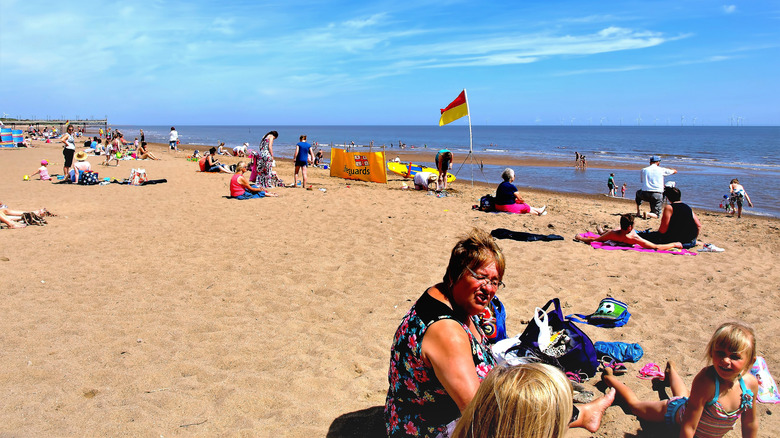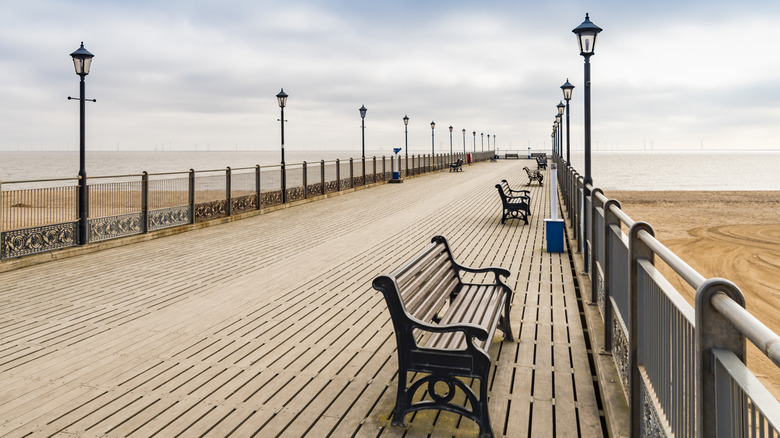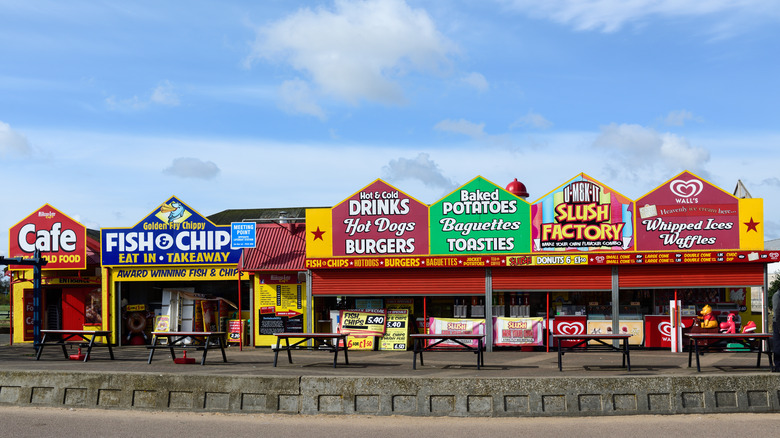This Lively UK Seaside Town With A Bad Reputation Is A Misjudged Gem
Ahh, Skegness, also fondly known as Skeggy or Skeg Vegas! A mere mention of its name conjures up images of penny arcades, sand in your ice cream, donkey rides on the beach, and knobbly knees competitions at the local Butlin's holiday camp. A trip to the coast is part of the British DNA, and the Lincolnshire resort of Skegness is a seaside institution — and yet, a poll by consumer website Which? resulted in visitors ranking it one of the two worst seaside towns in the entire nation. Why did it rank so low, and is the Costa del Skeg unfairly maligned?
To understand why Skegness took such a battering, it's worth comparing it to the village named the best seaside destination in the same poll: Bamburgh in Northumberland, with its miles of empty beaches, stunning medieval castle, and boutique hotels. In Bamburgh, there is barely a "Kiss Me Quick" hat in sight, reflecting the modern trend of U.K. seaside-goers favoring quaint coastal towns or picturesque harbors over old-school resorts. Other traditional destinations like Blackpool and Brighton also fared badly in Which's poll, despite (or maybe because of) having millions of visitors each year.
This brings us back to Skegness. As of 2021, 4 million people visited Skeggy each year, and it covers just about every English seaside cliché you can imagine. In that sense, it may have finished bottom of the poll not because it is the worst, but because it is the most seaside town in the U.K.
Where is Skegness and what does it offer?
Skegness sits on a long stretch of golden sands on the Lincolnshire coast overlooking the North Sea, around an hour's drive from Lincoln and three-and-a-half hours from London. Despite the resort's unfavorable reputation, its central beach was awarded a Blue Flag in 2023 for safety and cleanliness, making it a great spot for families with children.
The town became a popular destination with working-class holidaymakers during the Victorian era, when the railway line first reached the village in 1873. Over the next few decades, Skegness grew in population as the seafront was developed to cater to the influx of visitors, and the grand old pier was built in 1881. The pier is still there today despite storm and fire damage in the past, albeit much shorter than its original 1,817-foot span.
Billy Butlin opened his first holiday camp in Skegness in 1936, with the noble goal of providing everyone with "a week's holiday for a week's pay" (per The Guardian). Snobbery may also factor into Skegness's poor standing in the Which? poll: Butlin's traditionally has a reputation as a working-class place and the rest of the seafront has a similar low-rent charm. Like many British seaside resorts, Skegness's heyday ran from the mid-1930s to the boom of cheap vacation packages in the '60s and '70s, and now it has that slightly faded air of a bygone era.
How to fully enjoy a day in Skegness
Your enjoyment of Skegness will depend on what you want from a beach town along the U.K.'s coast. If you are the type who prefers boutique hotels and strolls along isolated beaches, then maybe it isn't the place for you. If you're seeking the noise and fun of a quintessential English day by the sea, however, then Skegness has the lot!
Skeggy's main drag is the Grand Parade, running parallel with the award-winning golden sands from near Skegness Pleasure Beach to the kitschy Suncastle Pub, where the seafront joins the quieter North Parade. This entire stretch is lined with souvenir shops, penny arcades, pubs, restaurants, and seafront guesthouses. Don't sleep on the traditional delicacies here. While it may not be fine dining, nothing pairs better with a walk along the prom than a bag of fish and chips, cotton candy, or fresh donuts. Also keep a look out for another classic British seaside treat, a stick of rock (candy), which often has the name of the resort running through the middle.
Skegness seafront has plenty to keep the whole family entertained with its fun fair, mini golf, aquarium, and seal sanctuary. It is also worth dropping a few pounds in the penny arcades. They may be a step down from the glamor of Las Vegas, but generations of Brits have the hectic electronic sounds, jaunty tunes, and clatter of falling coins etched into their memories from day trips to the seaside as kids.


